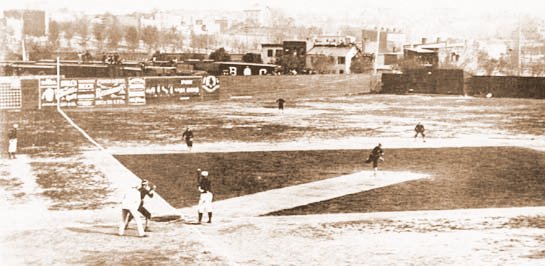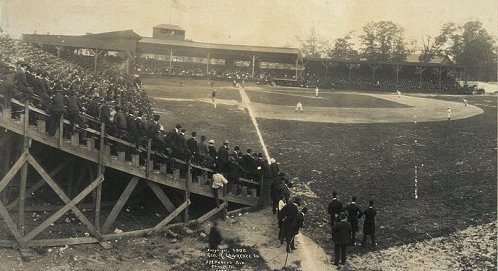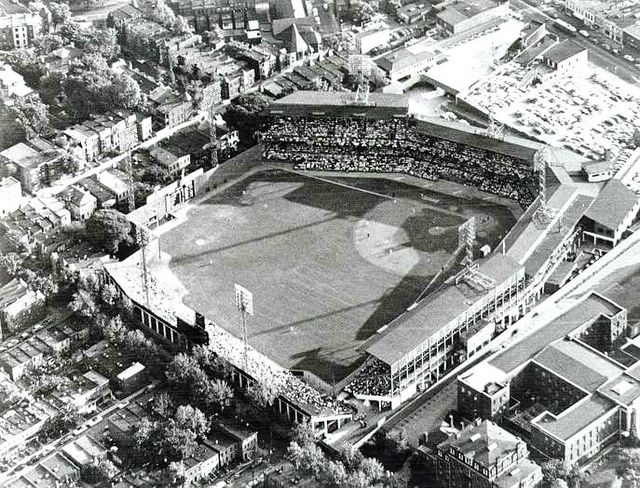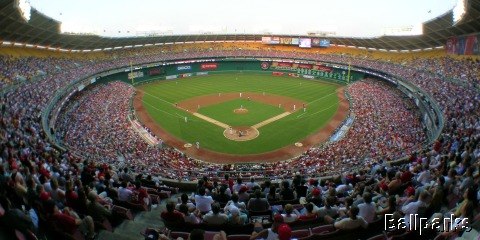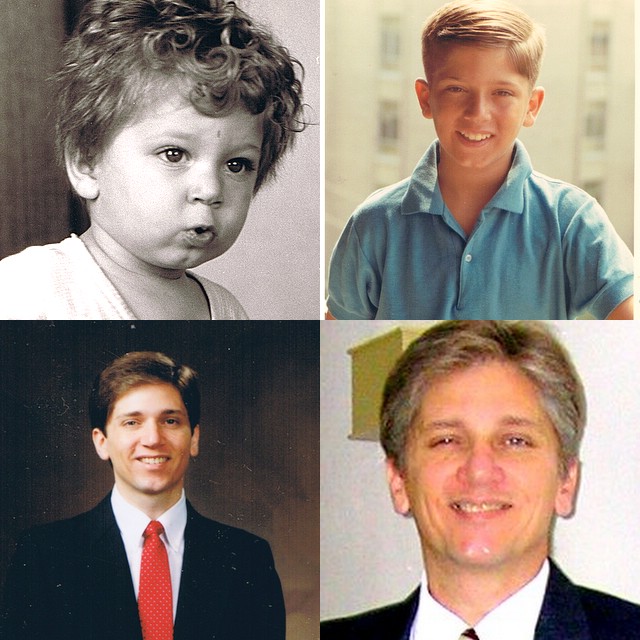The Time To End MLB's Arrogance Is Now
 [November 12th] -- Tick - Tick - Tick - Tick - Tick - Tick. That's the sound of hopes fading away for the Washington Nationals in 2006. Ha - ha - ha - ha - ha - ha. That's the sound of Bud Selig's response to our concerns.
[November 12th] -- Tick - Tick - Tick - Tick - Tick - Tick. That's the sound of hopes fading away for the Washington Nationals in 2006. Ha - ha - ha - ha - ha - ha. That's the sound of Bud Selig's response to our concerns.
White Sox owner Jerry Reinsdorf, chairman of the relocation committee, told WTOP radio Friday that a stadium lease deal must be finalized before a new owner is named, and said that the "ownership issue" might not be resolved until next season.
The Nats faithful are beginning to understand what it must have felt like to be a baseball fan in Montreal all these years.
Commissioner Selig, "King Bud," sees himself as a benolovent monarch who understands our needs better than we do. Kiss his rings and we'll be ok. Otherwise, well, otherwise he'll make our city's baseball team implode. And he'll have fun doing it too.
Years ago, the National Football League, the National Basketball Association and the National Hockey League were just like Major League Baseball. None of the leagues had any reason to concern themselves with the wants and needs of their fans. They were a monopoly. "Let them eat cake" was the attitude of many team owners. New leagues would soon change that attitude.
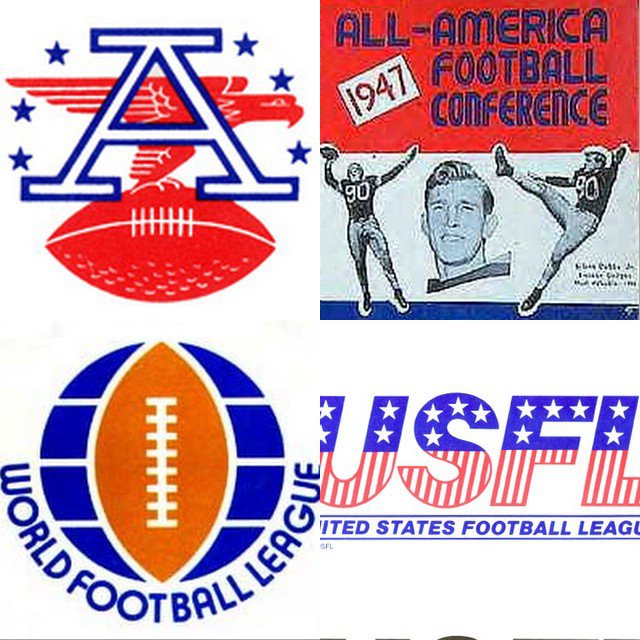 The NFL has had to beat back four different leagues over the past sixty years. The All-America Football Conference played from 1946-49. The Colts, Browns and 49ers joined the NFL following the league's collapse. In 1960, the American Football League came into being, eventually merging with the NFL in 1968. The World Football League in the mid 1970's, and the United States Football League in the mid 1980's helped change the shape of the NFL as well.
The NFL has had to beat back four different leagues over the past sixty years. The All-America Football Conference played from 1946-49. The Colts, Browns and 49ers joined the NFL following the league's collapse. In 1960, the American Football League came into being, eventually merging with the NFL in 1968. The World Football League in the mid 1970's, and the United States Football League in the mid 1980's helped change the shape of the NFL as well.
Prior to 1967, the NBA was a very boring basketball league that was centered in the Mid-A tlantic states. It was a defensive-minded league that featured a 40 second shot clock, set shots and very few blacks. The American Basketball Association was pure offense. It introduced the 30 second shot clock [although the game was so fast it was seldom used], the 3-point arc, dunks, behind-the-back passes and a style of play that came right out of the inner city. The ABA was the "Afro League" and the NBA the "Vitalis League." When the league finally folded in 1976, several of the ABA teams [Nuggets, Spurs, Pacers and Nets] joined the NBA. The remaining players went through a dispersal draft and forever changed the stodgy, slow-footed nature of the National Basketball Association.
tlantic states. It was a defensive-minded league that featured a 40 second shot clock, set shots and very few blacks. The American Basketball Association was pure offense. It introduced the 30 second shot clock [although the game was so fast it was seldom used], the 3-point arc, dunks, behind-the-back passes and a style of play that came right out of the inner city. The ABA was the "Afro League" and the NBA the "Vitalis League." When the league finally folded in 1976, several of the ABA teams [Nuggets, Spurs, Pacers and Nets] joined the NBA. The remaining players went through a dispersal draft and forever changed the stodgy, slow-footed nature of the National Basketball Association.
The National Hockey League was little more than a Canadian organization with a few token American teams before the World Hockey Association came into existence in 1972 and transformed hockey into a national sport. WHA team's raided the NHL and signed some of its best players. The WHA teams didn't have the depth of talent of the NHL, but its front-line players were equal to their NHL counterparts. Several WHA teams [Winnipeg Jets, Edmonton Oilers, Hartford Whalers, Quebec Nordiques] joined the NHL in 1978 and brought their fast, high scoring style to the older league.
Although none of these leagues enjoyed the competition, its aftermath left the NBA, NFL and NHL bigger, better, and stronger. Each league's fan base grew exponentially, as did the value of its franchises.
And then there is baseball.
Don't think that the era of dishonest baseball owners and shady back-room bargains began with Bud Selig and Jerry Reisendorf. In 1878, baseball owners made a secret agreement to not sign each others players as well as keep salaries artificially low. Each team gave the others a list of five players who were reserved from being signed or traded. This was the beginning of the "reserve clause" that lasted for nearly a century.
 The "Players League" was formed in 1890 in response to baseball's draconian financial measures. The new league featured revenue sharing and no reserve clause. It lasted only one season. The Federal League debuted in 1914.
The "Players League" was formed in 1890 in response to baseball's draconian financial measures. The new league featured revenue sharing and no reserve clause. It lasted only one season. The Federal League debuted in 1914. League owners refused to acknowledge baseball's reserve clause and signed many stars from the American and National Leagues. The demise of the Federal league brought about several lawsuits against Major League Baseball. It was the suit filed by the Baltimore club that the Supreme Court eventually ruled that baseball was not involved in interstate commerce, and therefore immune fro
League owners refused to acknowledge baseball's reserve clause and signed many stars from the American and National Leagues. The demise of the Federal league brought about several lawsuits against Major League Baseball. It was the suit filed by the Baltimore club that the Supreme Court eventually ruled that baseball was not involved in interstate commerce, and therefore immune fro m anti-trust legislation. The last affront to Major League Baseball was the Mexican League raids of 1946. Commissioner Happy Chandler was so angry at the players who signed with the Mexican League that he "black-listed" them for life. It took several years and many lawsuits before Major League Baseball ultimately lost in court. The Continental League was introduced in the mid 1950's as a logical response to baseball's refusal to expand into the western United States. The move westward of both the Dodgers and Giants, however, as well as the 1961-62 expansion ended the need for the new league. Baseball hasn't been threatened since.
m anti-trust legislation. The last affront to Major League Baseball was the Mexican League raids of 1946. Commissioner Happy Chandler was so angry at the players who signed with the Mexican League that he "black-listed" them for life. It took several years and many lawsuits before Major League Baseball ultimately lost in court. The Continental League was introduced in the mid 1950's as a logical response to baseball's refusal to expand into the western United States. The move westward of both the Dodgers and Giants, however, as well as the 1961-62 expansion ended the need for the new league. Baseball hasn't been threatened since.
Until now.
The time has come to stop baseball's arrogance before they run the game into the ground, and the only way to do that is to create a competitive league that will force their hand. We shouldn't have to watch the Nationals continue to be castrated so Bud Selig can show the D.C. City Council that "his is bigger."
Baseball has become a world-wide sport, so a new league should reflect the global aspects of the game. Call the league the "Global Baseball Association." Instead of having to deal with the daunting task of building a league from scratch, simply add an American component to what's already available. There are many quality teams right now in South America and Asia.
 Choose 16 existing teams from those regions, or create new ones that would play in Mexico City, Havana, Tokyo, Soul and Taipei. Create eight teams in the United States and another two in Canada [and YES! .. put one in Montreal]. Twenty-four teams playing in a league with an international flavor. ESPN would jump at the chance to broadcast league games. So would the sports cable channels in Canada, Mexico, Japan and Taiwan. The foreign teams would be stocked primarily with local talent, but could sign players from any nation. Here in America, teams could be built initially with free-agent minor leaguers with talent who have never been given the chance to play [Rick Short for example] and middle level major leaguers [the Hector Carrascos and Damian Jacksons of the world]. Slowly, over several years, the combination of amateur signings and major league free agents will allow the new league to be very competitive.
Choose 16 existing teams from those regions, or create new ones that would play in Mexico City, Havana, Tokyo, Soul and Taipei. Create eight teams in the United States and another two in Canada [and YES! .. put one in Montreal]. Twenty-four teams playing in a league with an international flavor. ESPN would jump at the chance to broadcast league games. So would the sports cable channels in Canada, Mexico, Japan and Taiwan. The foreign teams would be stocked primarily with local talent, but could sign players from any nation. Here in America, teams could be built initially with free-agent minor leaguers with talent who have never been given the chance to play [Rick Short for example] and middle level major leaguers [the Hector Carrascos and Damian Jacksons of the world]. Slowly, over several years, the combination of amateur signings and major league free agents will allow the new league to be very competitive.
I'm not suggesting that this new league would replace the American and National Leagues. Far from it. But it would bring a sudden stop to Bud Seligs antics. No longer would cities have to build half-billion dollar stadiums with baseball providing no assistance. The American component of the league could become a player development league similar to NFL Europe. The World Series would be truly a world series. Franchise values would skyrocket. Players would be more in demand. The "country vs. country" feel of soccer's World Cup would be integrated into baseball.
But most importantly, Bud Selig would be scared for a few years. That alone would be worth the price of admission to the Buffalo Bison or Tidewater Tigers or Portland Sabre Cats. I'll be happy to be the commissioner if any of you have $20 or $30 billion dollars handy.
Or maybe someone has Bill Gates email address? The Tacoma PowerPoints has kind of a nice ring, doesn't it??
<< Home









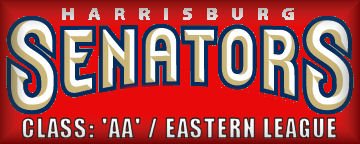
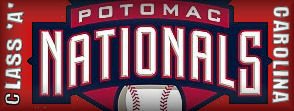

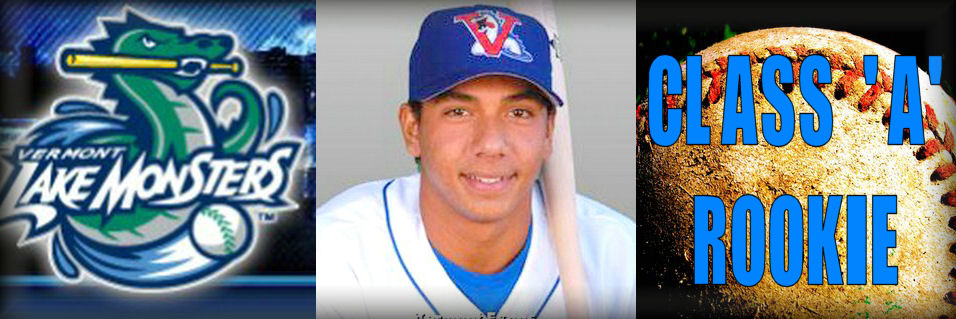











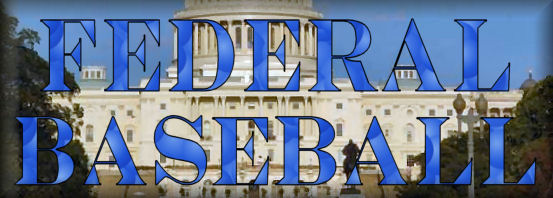



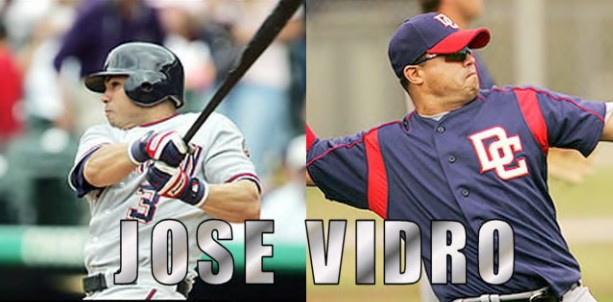




















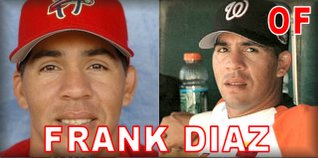

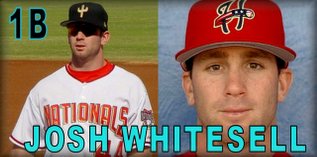
 3) 1926 (road) --- 4) 1936-'37, 1948-'51
3) 1926 (road) --- 4) 1936-'37, 1948-'51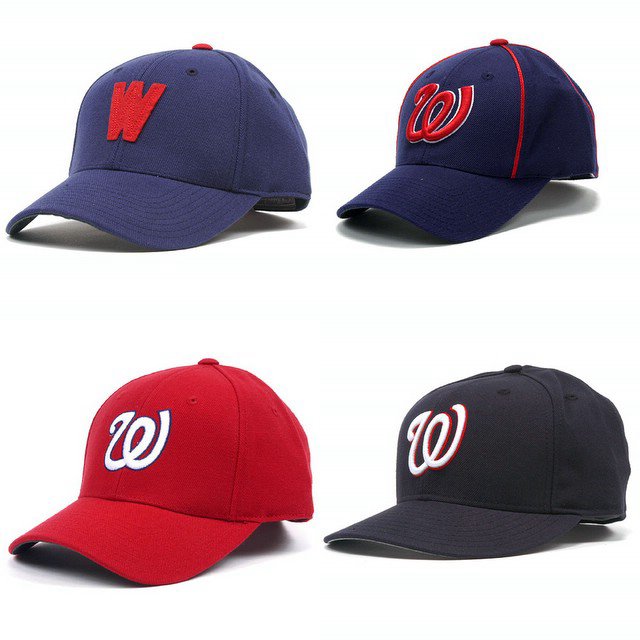 3) 1968 - '71, and 2005 (home) --- 4) 2005 (road)
3) 1968 - '71, and 2005 (home) --- 4) 2005 (road) Buddy Meyer --- Walter Johnson
Buddy Meyer --- Walter Johnson Ed Yost --- Muddy Ruel
Ed Yost --- Muddy Ruel Roger Peckinpaugh --- Joe Cronin
Roger Peckinpaugh --- Joe Cronin Del Unser --- Darold Knowles
Del Unser --- Darold Knowles Ed Stroud - Mike Epstein
Ed Stroud - Mike Epstein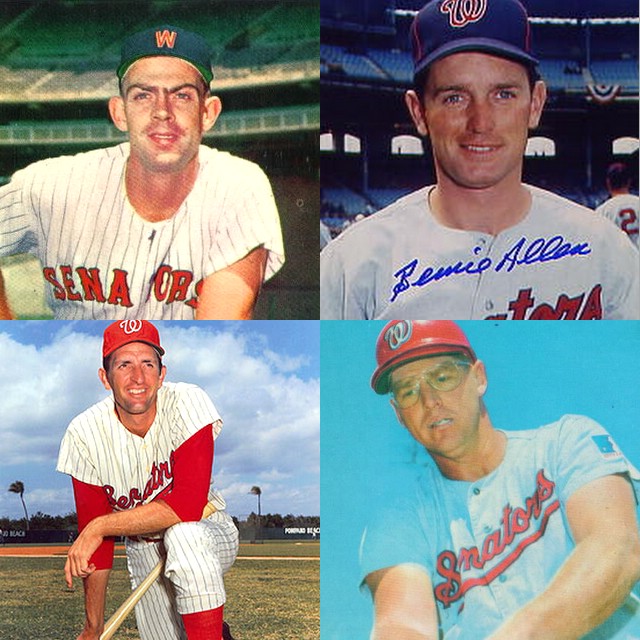 3)1968 -- 4)1969 - 1971
3)1968 -- 4)1969 - 1971